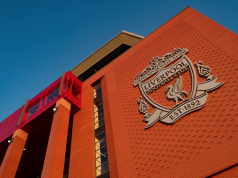Birmingham City manager for a whole season, Pep Clotet will always be remembered as the man who gave Jude Bellingham a chance.
The Spaniard didn’t really hesitate to give the then 16-year-old a chance, starting him in 32 games out of a potential 42 in the league, with the youngster repaying him with great performances, four goals and three assists from midfield.
That one campaign was enough to convince Borussia Dortmund to gamble on the St Andrew’s wonderkid, spending close to £30m on him to continue their tradition of being a very worthwhile stepping stone for up and coming stars.
Clotet, who now has time on his hands, sat down with France Football to talk about the young prodigy, and was immediately asked if he immediately felt Bellingham had that special something.
He replied: “We felt he was waiting for just one thing: to seize the opportunity he was given. We also felt he wasn’t going to let go. You could see it in his eyes. From then, I was sure he would be easily accepted in the first-team dressing room”.
He said: “Because he isn’t just strong going forward, but also defensively. He’s someone who will put a lot of intensity once the ball is lost and is at ease tackling and very strong physically. Add to that his intelligence and a very professional approach to his job, and you’re not far off having the type of midfielder I was talking about. On top of that, he’s good with both feet and in the air…”
Always training hard and first at sessions, Bellingham is ‘always looking to improve’, according to the former Birmingham manager.
As for the pressure, Clotet feels it doesn’t have an impact on the youngster.
He explained: “He deals with it really well. As I said before, the only thing he cares about is what he has to do. The rest… I think that’s what allows him to not succumb to external pressures. I’ll even go further: when things get tough, he wants to take even more responsibility and carry the team on his back.
“That wasn’t easy to do at Birmingham in a club that didn’t have the resources to play at the top of the table and spent most of its time trying to survive”.
























